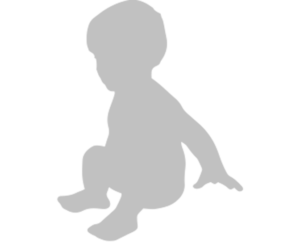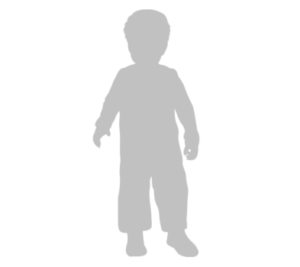What is infant meningitis?
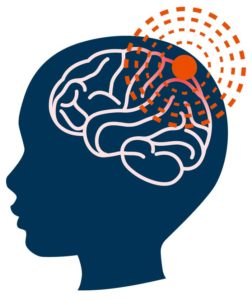 Meningitis is an infection of the meninges, which are the membranes under the skull that cover and protect the brain and spinal cord. The disease causes swelling and can lead to irreversible brain damage, cerebral palsy, and even death when left untreated.
Meningitis is an infection of the meninges, which are the membranes under the skull that cover and protect the brain and spinal cord. The disease causes swelling and can lead to irreversible brain damage, cerebral palsy, and even death when left untreated.
Some groups of children are more likely to get meningitis than others. For example, infants, especially those younger than 2 months of age, are at higher risk for bacterial meningitis. This is because their immune systems are immature. Premature babies are also at high risk.
The most common age for meningitis is 2 months to 2 years old.
While it can be scary when a baby has a life-threatening illness like meningitis, remember that it is treatable with prompt medical care.
Types of meningitis in infants
Common bacteria and viruses cause most cases of meningitis in infants in the United States.
The 2 main types of pediatric meningitis are bacterial meningitis and viral meningitis.
Bacterial meningitis
Bacterial meningitis is a rare but serious disease that often affects children 2 years of age and younger.
About 3,000 people — including many infants — are diagnosed with bacterial meningitis yearly in the U.S.
The bacteria that cause this infection can be found in the mouths of healthy children. However, children do not get the disease unless bacteria enter their bloodstream.
When diagnosed and treated quickly, 7 out of 10 children with bacterial meningitis recover fully. However, in about 2 out of 10 cases, this infection can cause children to suffer long-term complications.
Newborns with bacterial meningitis who receive treatment face a 5-20% risk of death. Anywhere from 20-50% of newborns who survive will develop serious health problems such as brain damage, hydrocephalus (a condition caused by extra fluid in the brain), and hearing loss.
Tragically, newborns who do not receive treatment are likely to die from this infection.
Viral meningitis
Viruses cause most cases of meningitis in infants.
In most cases, viral meningitis is not as serious as bacterial meningitis. Children with healthy immune systems usually get better on their own.
However, viral meningitis can be more serious when infants are less than 3 months old or when the herpes simplex virus is involved.
What are the causes of meningitis in infants?
Both bacterial and viral meningitis usually spread the same way other common illnesses spread — through an infected person’s coughs, sneezes, or touches.
Viruses that cause colds, the flu, mumps, and diarrhea often cause viral meningitis.
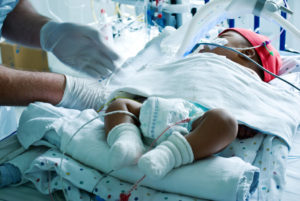 Different types of bacteria cause bacterial meningitis in children. The most common cause of bacterial meningitis in infants is E. coli and group B streptococcus (GBS) bacteria.
Different types of bacteria cause bacterial meningitis in children. The most common cause of bacterial meningitis in infants is E. coli and group B streptococcus (GBS) bacteria.
Bacteria called Streptococcus pneumoniae (pneumococcus) and Neisseria meningitidis (meningococcus) are often to blame in older children.
The bacteria that cause bacterial meningitis can spread to the meninges from a severe head injury or an ear or sinus infection.
Transmission of bacteria during labor and delivery
Sometimes, the bacteria that cause meningitis enter a newborn’s body through cuts in the scalp from tools like forceps used to assist a vaginal delivery.
A mother can also pass on bacteria to a baby during delivery that can lead to meningitis.
Mothers with group B streptococcus can spread the bacteria to their newborns if they do not receive IV (intravenous) antibiotics during delivery.
Health care providers should screen pregnant women for group B streptococcus toward the end of their pregnancy. Expectant mothers with GBS who do not have symptoms can still infect their babies during labor and delivery.
About 25% of women have GBS.
Doctors sometimes give antibiotics during labor if a woman has not been tested for GBS or previously gave birth to a baby with GBS disease.
Medical professionals who fail to follow the standard of care in screening or treating patients can cause serious harm to vulnerable newborns. Preventable medical mistakes are often considered medical negligence or medical malpractice.
If a medical error caused your child to develop meningitis, you may be eligible for financial compensation. Share your story with a nurse advocate to learn more.
What are the symptoms of meningitis in babies?
Older children with meningitis usually have a stiff neck and a headache. However, parents should look for different signs of meningitis in babies.
Common symptoms of meningitis in infants include:
- A temperature that is too high or too low
- Bulging fontanelles (soft spots of the baby’s head)
- Extreme sleepiness
- Feeding problems
- High-pitched or excessive crying
- Irritability
- Rash
- Seizures
- Sensitivity to bright lights
- Vomiting
- Yellow skin and eyes (jaundice)
Most times, seizures are caused by rapidly acquired high fever, not the meningitis infection itself.
Symptoms of meningitis may appear several days after a baby has a cold, runny nose, or diarrhea. However, in other cases, signs of meningitis pop up suddenly and progress rapidly.
Parents who suspect their child has meningitis should seek immediate medical treatment.
When to get immediate medical care
Early detection and treatment are crucial to giving an infant with meningitis the best chance of recovery.
Contact your child’s doctor immediately if you spot these warning signs:
 Child younger than 2 months old
Child younger than 2 months oldSymptoms of meningitis in infants are often subtle. Look for a fever, irritability, sluggishness, and a decreased appetite. The American Academy of Pediatrics (AAP) advises parents to call a doctor early about meningitis suspicions. AAP says it is better to call early and be incorrect than call too late.
 Child 2 months to 2 years old
Child 2 months to 2 years oldThis is the most common age for meningitis in children. Look for symptoms such as vomiting, fever, rash, and a decreased appetite. Children may be extremely cranky or sleepy. Fever and seizures are often the first signs of meningitis.
 Child 2 to 5 years old
Child 2 to 5 years oldChildren in this age range may have the above symptoms. Plus, they may complain about a headache, back pain, or a stiff neck.
How is meningitis in infants diagnosed?
If a doctor suspects that a child has meningitis, they may order one or more of these 3 tests:
- Blood culture: This blood test can identify a specific pathogen responsible for an infection.
- Computerized tomography: A CT scan uses X-rays and computer technology to image parts of the body, where they will be able to see any swelling in the brain or signs of infection in the chest and sinuses.
- Spinal tap (lumbar puncture): A medical professional inserts a hollow needle into the lower back to remove a sample of spinal fluid. The fluid is tested for infection to confirm a diagnosis of meningitis. A doctor may not order this test if a child is very sick.
It is not unusual for parents to worry about their child getting a spinal tap. Keep in mind that the procedure is safe and has few risks (infection being a risk but rare) and that doctors will use information from the test to help your child get better.
Children are sometimes awake when they get a spinal tap. In other cases, medicine is used to help them relax or sleep during the procedure. A headache can be expected following a spinal tap.
How is meningitis in babies treated?
Once a baby is diagnosed with meningitis, treatment should start immediately.
Treatment for bacterial meningitis
Children with bacterial meningitis generally spend a few days in the hospital and receive IV antibiotics and fluids. In addition, a doctor may prescribe a steroid to decrease swelling. The medical team will keep an eye out for any complications.
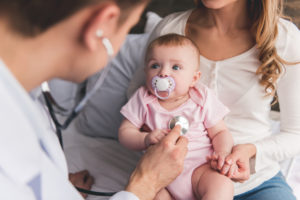 The earlier treatment begins, the better the outcome is likely to be. A doctor may start antibiotics before getting the spinal tap results.
The earlier treatment begins, the better the outcome is likely to be. A doctor may start antibiotics before getting the spinal tap results.
Children with this bacterial infection usually need IV antibiotics for 7-21 days. The treatment length depends on the child's age and the type of bacteria identified. In many cases, children can receive IV antibiotics at home.
Sometimes infants with bacterial meningitis experience complications such as brain damage, hearing loss, and vision problems. In addition, damage to the child’s heart, kidneys, and adrenal glands can also occur.
Children with bacterial meningitis should have a hearing test after they get better.
Treatment for viral meningitis
Most children with viral meningitis get better in 7-10 days without antibiotics or hospital stays.
Parents should treat a child with viral meningitis the same way they would a child with the flu — with rest, fluids, and over-the-counter pain medicine.
However, there are exceptions. For example, infants with viral meningitis caused by the herpes simplex virus may need to be hospitalized and given IV antiviral medication.
Did your child suffer a brain injury or other complications from a meningitis infection? You may be entitled to financial compensation if the complications were caused by a preventable medical error. Call (855) 220-1101 to speak to one of our nurse advocates.
Prevention of meningitis in children
Vaccines can help prevent meningitis in children. Your child’s pediatrician can let you know whether your child is up to date with their vaccines.
These 3 vaccines can prevent meningitis in babies and children:
- Hib vaccine: This vaccine lowers the chance of a child becoming infected with Haemophilus influenzae type b (Hib) bacteria. Babies typically receive the first of a series of injections at 2 months.
- Meningococcal vaccine: This prevents bacteria (N. meningitidis) that can cause meningitis. Children usually receive this vaccine when they are 11 or 12 years old or start high school.
- Pneumococcal Vaccine: This vaccine prevents meningitis and other serious infections caused by the pneumococcus bacteria. Babies typically receive the first of a series of injections at 2 months. Children with weak immune systems or other health problems often get a pneumococcal vaccine between the ages of 2 and 5.
Additionally, good hygiene goes a long way toward protecting children from meningitis and other infectious diseases. Children should wash their hands, especially before eating and after using the bathroom, and avoid close contact with people who are sick.
Sometimes doctors give antibiotics to anyone who has been around a person diagnosed with bacterial meningitis.
Meningitis in infants & medical negligence
Because meningitis in infants progresses rapidly, a delay in diagnosis or treatment can have dire consequences. When doctors misdiagnose meningitis or do not diagnose it until too much time has passed, children can suffer brain damage, cerebral palsy, or hearing loss. Untreated meningitis in babies can be deadly.
If your child has meningitis-related complications connected to a preventable medical error, you may be entitled to financial assistance to help pay for their care.
Compensation can help pay for expenses such as:
- Assistive devices
- Lost wages
- Medical bills
- Physical therapy
- Speech therapy
- Special education
Get a free legal case review today to learn if you qualify for compensation.




